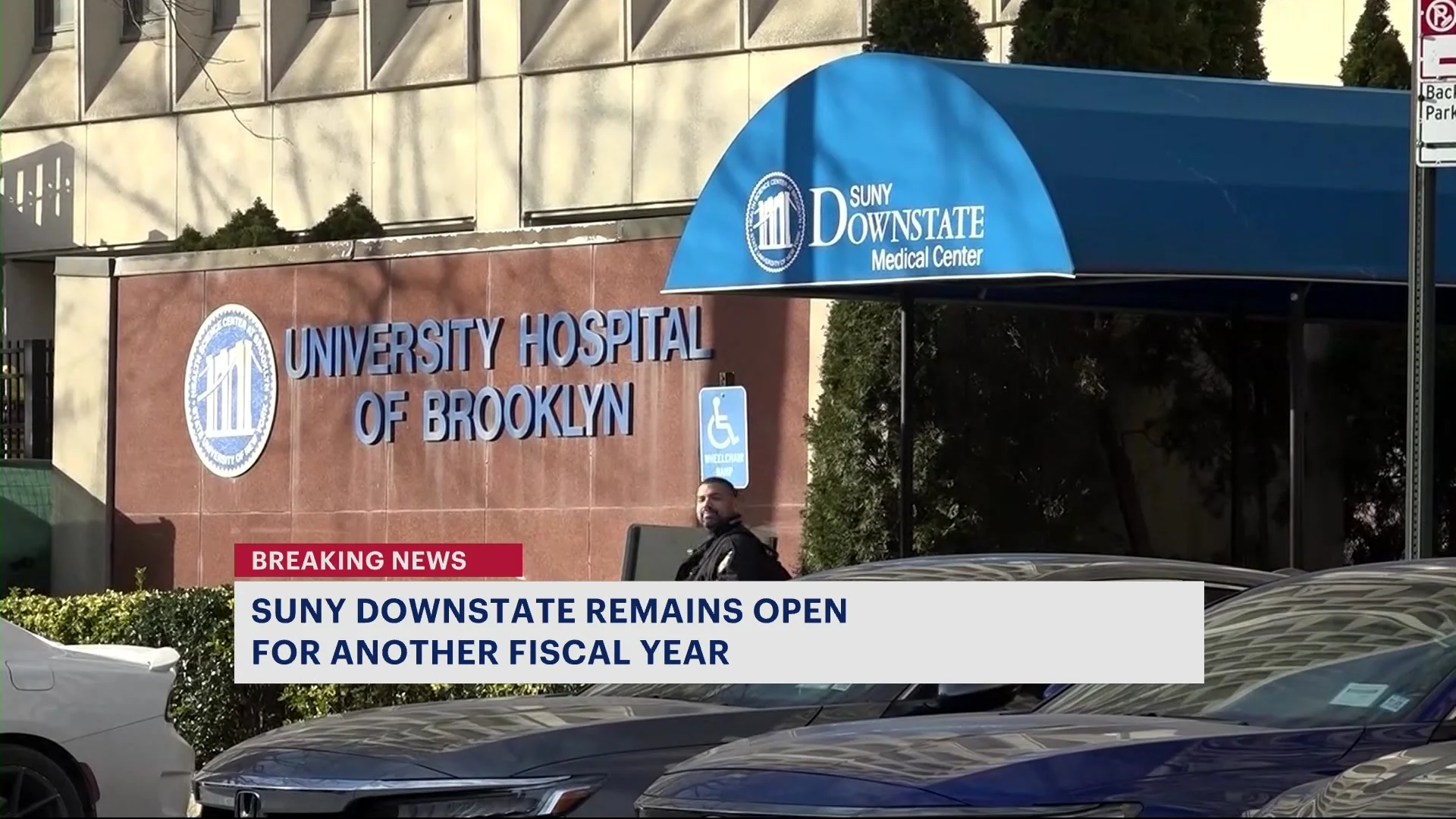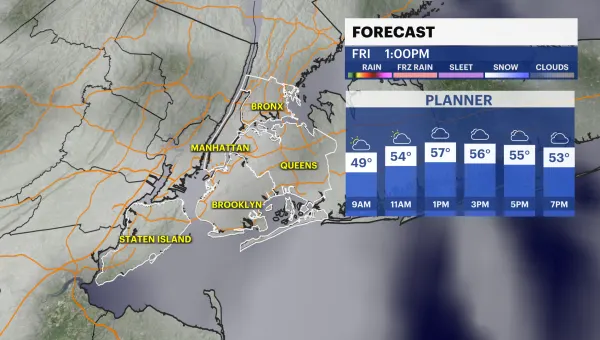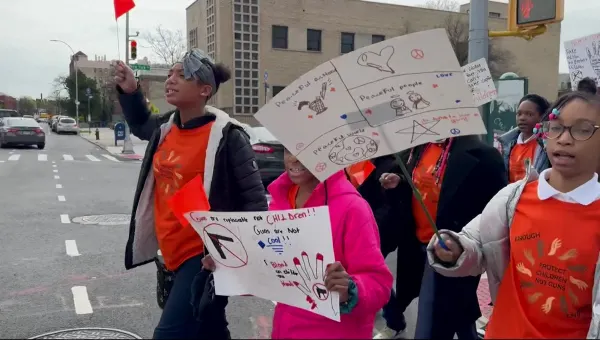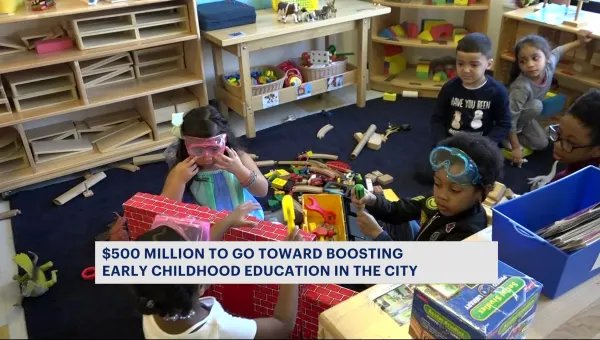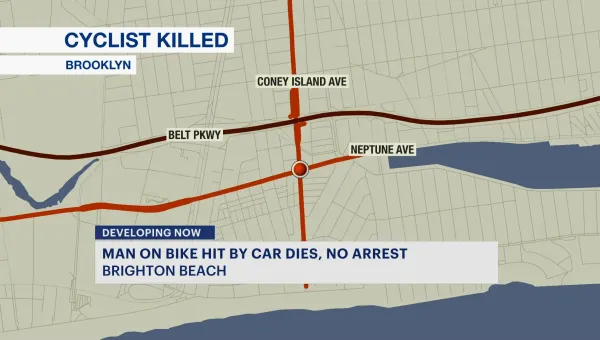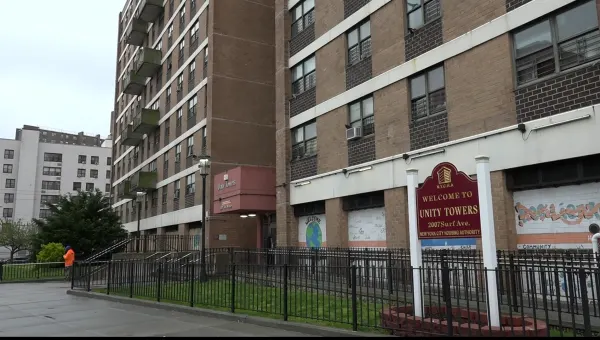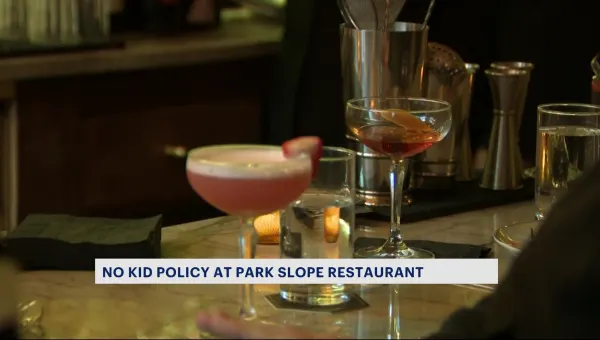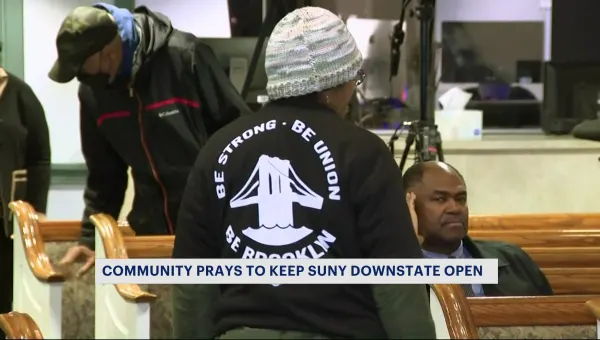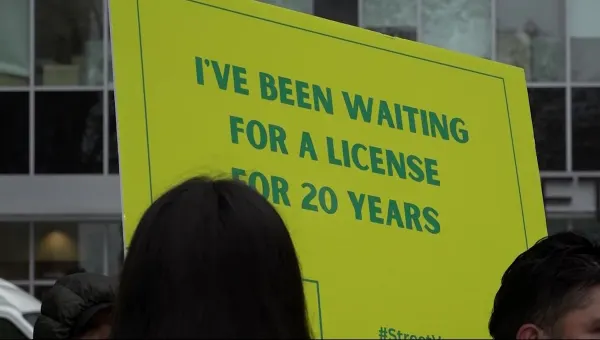UN: 8 million affected by Nepal quake
(AP) -- 5.45 p.m. (1200 GMT) Rain brought fresh misery to the Kathmandu Valley, where tens of thousands of people are living outside after Saturday's earthquake, fearing returning to their homes.
News 12 Staff
•
Apr 29, 2015, 3:50 AM
•
Updated 3,278 days ago
Share:

(AP) -- 5.45 p.m. (1200 GMT)
Rain brought fresh misery to the Kathmandu Valley, where tens of thousands of people are living outside after Saturday's earthquake, fearing returning to their homes.
Rain brought fresh misery to the Kathmandu Valley, where tens of thousands of people are living outside after Saturday's earthquake, fearing returning to their homes.
At Kathmandu's outdoor cremation grounds, though, which have been busy almost nonstop since the quake, the rain changed very little at all.
The work continued: men carried logs; families lit funeral pyres; marigolds fell from bodies being lifted atop those piles of wood. Here, on the banks of the Bagmati River, little seemed to have changed at all.
- Bernat Armangue, Kathmandu, Nepal
___
4.45 p.m. (1100 GMT)
The United Nations says 8 million people have been affected by the weekend earthquake in Nepal that killed nearly 4,400 people and 1.4 million people are in need of food assistance, but the challenge would be to reach them.
Jamie McGoldrick, U.N. resident coordinator in Kathmandu, told reporters that of those affected 2 million people are in the 11 worst-hit districts.
He says that 72 hours after the quake on Saturday, "people are still in a very much hard-ship mode."
The challenge of supplying to small villages at high altitudes and in rough terrain "is quite significant, he said.
After flying by helicopter over Dhulikhel town, on the north side of the Kathmandu valley, he estimated that about 40 percent of the houses were damaged, but the destruction was erratic.
"Some areas on one ridge are completely untouched, on the other side it's completely flattened," he said.
- Todd Pitman, Kathmandu, Nepal
___
4.15 p.m. (1030 GMT)
The Mt. Everest base camp has grown deeply quiet over the past couple days, as more and more climbers leave in the wake of the deadly avalanche that pulverized part of the mountaineering village after the Saturday earthquake that killed nearly 4,400 people.
Base camp is "very silent," Azim Afif, the leader of a team from University of Technology Malaysia, said during a brief interview on the messenger service WhatsApp. His team, he said, had decided not to attempt to reach the summit. They were planning to descend from base camp Wednesday.
The main trail through the Khumbu Icefall, the expanse of immense chunks of ice that must be traversed during summit attempts, was wiped out by the avalanche. The "Icefall Doctors" - the Sherpas who create the trail of ropes and ladders - had already left base camp, he said.
As a result "I'm not sure if anyone is still trying" to make summit attempts.
- Karly Domb Sadof, Bangkok, Thailand
___
2.15 p.m. (0830 GMT)
At Dubai International Airport, workers loaded crates packed with relief aid into a Boeing 747 destined for Nepal, just over a four-hour flight away.
The Gulf commercial hub is home to a sprawling logistical and warehouse facility known as International Humanitarian City that is used by United Nations agencies and NGOs to deploy humanitarian aid.
The chief executive of IHC, Shaima al-Zarooni, said relief workers have faced difficulties in delivering needed aid such as temporary shelters, satellite communications gear and medical equipment because of closures and congestion at the airport in Kathmandu.
The United Arab Emirates, which includes Dubai, announced on Sunday it was deploying search-and-rescue team to Nepal on Sunday to help with recovery and relief efforts.
- Fay Abuelgasim, Dubai, United Arab Emirates.
__
2.15 p.m. (0830 GMT)
The largest Emirati telecom, Etisalat, is offering customers five free minutes to call loved ones in Nepal by entering a special code on their mobile phones.
Chief Marketing Officer Khaled Elkhouly described the move as "a small gesture during this hour of crisis."
Kuwait announced Monday evening it would provide $3 million in urgent aid to assist victims of the earthquake.
The oil-rich Gulf states are a key destination for Nepalese migrant workers, where they find jobs as maids, security guards and construction workers.
- Adam Schreck, Dubai, United Arab Emirates.
___
1.15 p.m. (0730 GMT)
Helicopters crisscrossed the skies above the high mountains of Gorkha district, ferrying the injured to Gorkha and other towns for treatment, and aid supplies back out to remote villages - some reachable only by air after landslides blocked mountain roads.
Two chartered helicopters brought in eight women from Ranachour village, two of them clutching babies to their breast, and a third heavily pregnant.
Sangita Shrestha, a heavily pregnant woman, said there are many more injured in her village.
Some of the women on the flight were grimacing and crying in pain and unable to walk or speak, in agony three days after being injured in the quake Saturday that killed nearly 4,400 people in Nepal.
Sita Karki winced when army troops lifted her from the helicopter. Her broken and swollen legs had been tied together with crude wisps of hay twisted into a makeshift splint to keep them from moving.
- Katy Daigle, Gorkha, Nepal
___
1.00 pm. (0715 GMT)
In Bhaktapur, one of Nepal's most historic cities neighboring Kathmandu, people were beginning to go back to their damaged homes to collect anything they could salvage. A team of Chinese rescue workers was at work on the ground.
Some parts of the battered town look like a deserted jungle of electricity cables and broken bricks.
The tourists, so much a part of this temple town's landscape, are now missing and the locals wander around.
At the local public hospital patients have been camped in the lawns since the massive quake struck Saturday and flies buzz everywhere.
Ten-year-old Sia Ganesh, her leg broken, cries in pain. Her grandmother tries to comfort her when she cries. Her father also suffered a broken leg.
Her 5-year-old brother Aros was among the nearly 4,400 people killed in Nepal alone in Saturday's quake.
- Bernat Armangue, Bhaktapur, Nepal
___
12.30 p.m. (0645 GMT)
At the Kathmandu airport, helicopters chartered by trekking brought in both foreign trekkers and local Nepalese villagers from remote areas where they were stranded after Saturday's earthquake that killed nearly 4,400 people.
Dave Gordon, from San Francisco, Ca., said he was in Langtang, a popular trekking area 60 kilometers (40 miles) north of Kathmandu, until Tuesday waiting for the rescue flight.
When the quake occurred, "cliffs came down" and four or five porters were killed, buried in the rock fall," he said. "Trails are completely destroyed. People are stuck. They can't get out. It was very bad."
- Binaj Gurubacharya, Kathmandu, Nepal
___
12.15 p.m. (0630 GMT)
An expedition doctor and base camp manager for a trekking group says that all those injured in Saturday's quake-triggered avalanche have been evacuated and the dead bodies flown out.
Dr. Nima Namgyal Sherpa says at least five teams are still waiting to hear if they will get permission to scale the summit.
Sherpa says they "have not made the decision to quit yet."
The others are now salvaging whatever they can and planning to trek down from base camp, Sherpa told The Associated Press in a WhatsApp message.
The government will decide within the week whether they'll close the mountain or allow the climbers to proceed. At least 18 people were killed in the avalanche and more than 4,400 in the earthquake in Nepal alone. About 100 died in India and Tibet.
- Yirmiyan Arthur, New Delhi.
___
11 a.m. (0515 GMT)
An American doctor working at a hospital in Kathmandu, says about 90 percent of the houses are "just flattened" in Gorkha district, and hundreds of thousands of people are homeless after Saturday's earthquake.
Rebecca McAteer says her team was the first to arrive in many places in Gorkha, where the earthquake's epicenter was located. More than 4,400 people were killed in the earthquake in Nepal, India and Tibet.
She said these villages have very poor infrastructure with flimsy homes, and the residents are mostly older women and men, and children.
She said "the young men have all left to look for work elsewhere."
- Katy Daigle, Gorkha, Nepal
Associated Press writers Todd Pitman and Binaj Gurubacharya in Kathmandu contributed to this report.
